Is this a good module or not?
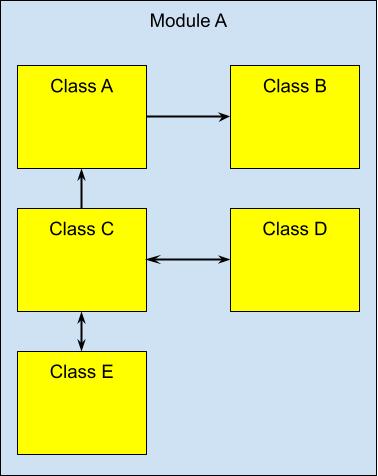
My answer: can’t tell. It depends on how the module interacts with other modules.
Personal blog
Is this a good module or not?

My answer: can’t tell. It depends on how the module interacts with other modules.
First – realize what constitutes good tests.
The answer: little (ideally: zero) false positives. Feel free to read my previous article that elaborates on this topic.
But how exactly? Here is my answer:
Continue readingThis is the most important, yet the most unspoken trait of good tests. Tests should be the oracle.
If all tests are green – the app will work on prod. If at least one test is red – the app won’t work.
Think Continuous Delivery. Every step in the process has to be automated. When tests are green, there is no room for extra human checks before going prod. The decision (deploy – no deploy) is handed over to your tests.
Do you trust your tests this much? Is this even possible to be this confident about tests?
Continue readingConsider a method that calculates some ETA:
class Calendar {
add3WorkingDays(): Date {
const result = new Date();
let daysAdded = 0;
while (daysAdded < 3) {
result.setDate(result.getDate() + 1);
if (this.isWorkingDay(result)) {
daysAdded++;
}
}
return result;
}
isWorkingDay(date: Date): boolean {
const day = date.getDay();
return day !== 0 && day !== 6;
}
}Notice how add3WorkingDays depends on the time when it’s called (result is initially now). Because of that, you’d have trouble writing reliable unit tests for this.
My recommendation: change the implicit dependency of now to explicit one and inject it:
add3WorkingDays(date: Date): Date {
const result = new Date(date);
// no changes from hereIt takes only so much to implement dependency injection, the most overcomplicated technique in the history of programming. You don’t need frameworks, containers, service locators, interfaces, or decorators. You only need to know how to parameterize a method.
Oh, by the way, we changed the interface of the method too. We have to change all the callers: calendar.add3WorkingDays() -> calendar.add3WorkingDays(new Date())
Does this mean you don’t want to introduce dependency injection later in the project, to avoid risky refactors? No. You can still have DI without changing the interface using the default parameter:
add3WorkingDays(date: Date = new Date())We often design our code so that one procedure comprises many classes, often grouped by layers. For example, in web dev, that could be controllers, models, repositories, etc:
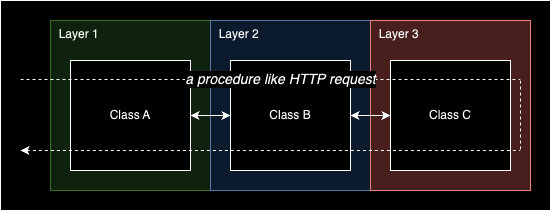
Layers are good. Often at least two layers are desirable for maintainability: domain and low-level. If you’re like me, you like 2-5 layers but not too many.
Now how do you test such code? It comes naturally to want to test each component separately and mock out the collaborators from other layers. I believe it’s because unit tests are said to be run “in isolation”:
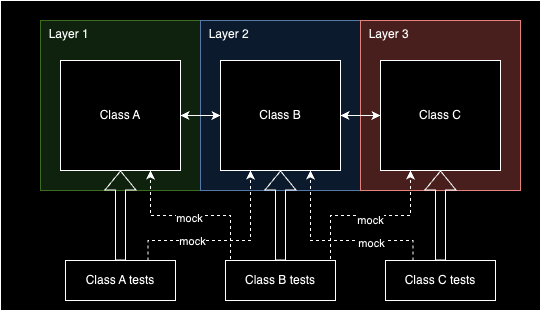
My advice – don’t automatically do this. Aim for this instead:
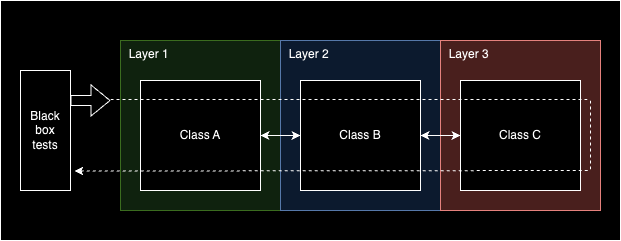
Starting Puzzle Balls I didn’t have the slightest idea what Unity is. “Game engine” didn’t really say anything to me.
What have I learned doing my first project in Unity?
Continue readingI have the pleasure to announce: the playable release of Puzzle Balls is out! Go ahead, play it! Prepare your arrow keys and space bar, and connect 3 or more; fullscreen recommended!

The game is not developed only by me. I collaborate with a dear friend of mine, Michał Hołowaty.
Keep in mind it’s a very early release. There is not much depth to the gameplay, plus many assets are just a placeholder, and many features are in the early stages. Although the game is fully functional and can be highly addictive! You have been warned!
We keep having fun playing and developing the game, so save the link in your bookmarks and come back to it once in a while. You are likely to encounter new features soon!
Continue readingDo you know what it is?
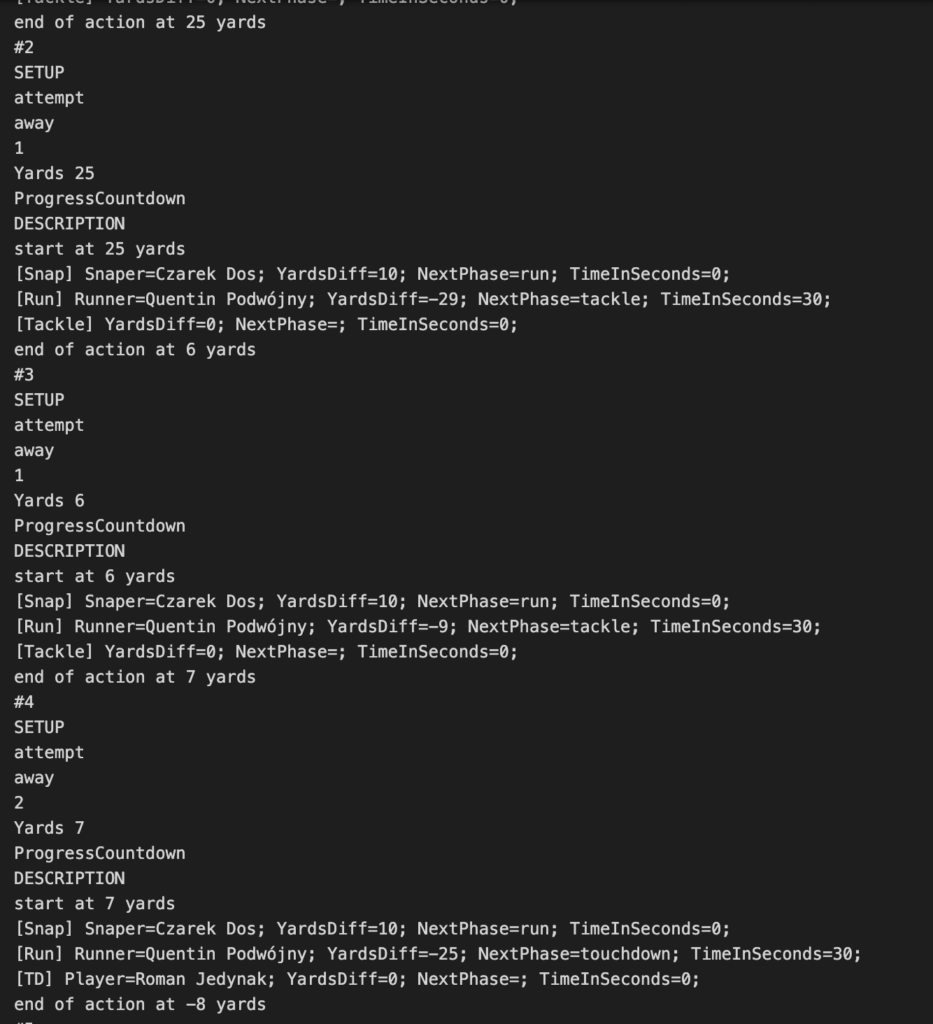
Yes, this is a log-or-something text file, but more importantly – this is something that I had in mind when starting this project. It’s a legit football game generated by Football Manager, presented in a debug form. Pretty cool if you have been wanting it for the last 3 months, believe me.
Continue readingIn fact, it’s far from dead. From the last time (56 days ago) I have pushed 45 commits. Considering the summer season, long AFKs, and a crazy time for me (for private reasons), I call it an okay-ish result.
It’s far from dead because it’s been just now that I feel more-or-less comfortable with the shape of the code.
Continue readingI present you my new project – (American) Football Manager, which will be a Ruby application allowing you to become a manager of american football team. As a die-hard Panthers fan, I want to explore this world and dust off my Ruby development skill. I also want to share the progress on the blog.
Starting from complete zero, what needed to be done?
Continue reading© 2026 Bartosz Krajka
Theme by Anders Noren — Up ↑
Recent Comments